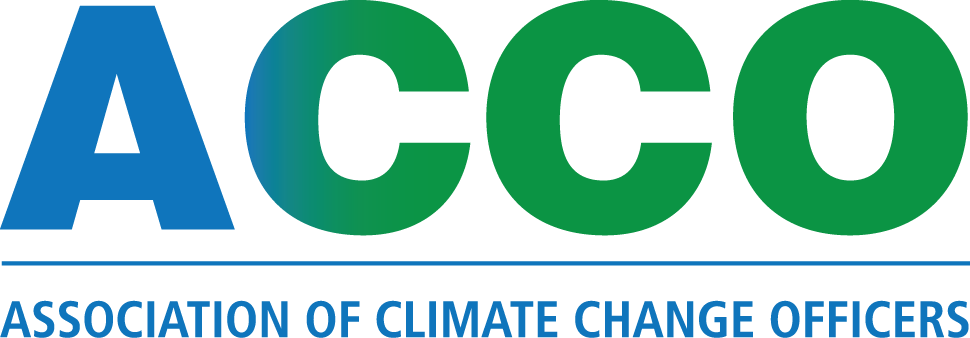ACCO's Training Capabilities
Participants engage in our training in order to:
Prepare for exams required for ACCO credentials;
Satisfy elective and continuing education requirements for ACCO credentials;
Satisfy continuing education requirements for employers and third party credentialing bodies; and
Gain valuable skills and knowledge that will better position to engage in climate preparedness and greenhouse gas (GHG) reduction initiatives.
Since 2013, ACCO has been developing and offering formal training through national conferences, regional workshops and online formats. Our courses have been developed through a consensus process involving hundreds of experts in the public and private sectors, and are designed to meet learning objectives based upon the Core Competencies for Climate Change Officers and Professionals.
Our existing curriculum undergoes a regular and frequent review process as we advance and enhance our training activities. New bootcamps and curriculum are currently being developed and will be added to the training catalog.
| Request Customized Training: |
Climate change can pose
distinctive challenges for a particular region, sector or organization.
ACCO can provide your organization or company with private in-person and
online training options in nearly any configuration, for any size group,
for most of the curriculum in the course catalog (we can even create new
curriculum as long as it falls under the topics covered under the Core
Competencies).
|
| Group Registration Bundles: |
| If you have five (5) or more employees that need training, you can pre-purchase registrations to all ACCO training programs (in-person and online). The group registration bundles are easy to assemble. You may want to reference the ACCO Training Affiliate program, which features pre-packaged training bundles that you can procure. |
Getting Climate into the DNA of Decision-Making
Our training is intended to integrate climate change planning into core institutional priorities and community values.
Overview of Categories of Training Modules
Develop foundational understanding of climate science and the capacity to conduct vulnerability assessments, inform decision making with critical resources and bring it all together with strategic adaptation planning.
Many organizations are looking toward their suppliers to mitigate climate risk and seize opportunities for GHG and cost reductions. Building competencies in related supply chain and procurement strategies is a critical component to successful initiatives.
All managers and executives should have a basic grasp of greenhouse gas (GHG) accounting, related reporting, the role GHG management efforts play in climate change strategies and how their decisions affect an organization's broader GHG reduction efforts.
Climate change represents a significant human capital and organizational change challenge for all institutions. ACCO has developed training to help professionals with organizational change strategies, stakeholder engagement practices and understanding and driving behavior change initiatives.
Driving institutional change on energy management requires an understanding of the energy ecosystem, best practices for achieving efficiencies and driving renewable energy programs, and assessing continuity of energy systems, delivery and infrastructure.
Assessing the economic implications of climate change and related initiatives is critical to an organization's long-term strategies and implementation. Build competencies in projecting implications, financing initiatives and working with related institutions.
Voluntary and compliance systems leverage RECs, offsets and related commodities to support greening efforts. Organizations developing, procuring and leveraging these commodities should have a solid grasp of their functionality, legality and economics.
An organization’s climate change strategy needs to take into account materiality considerations, branding, reputation, implications across business units or departments and the long-term implications.


